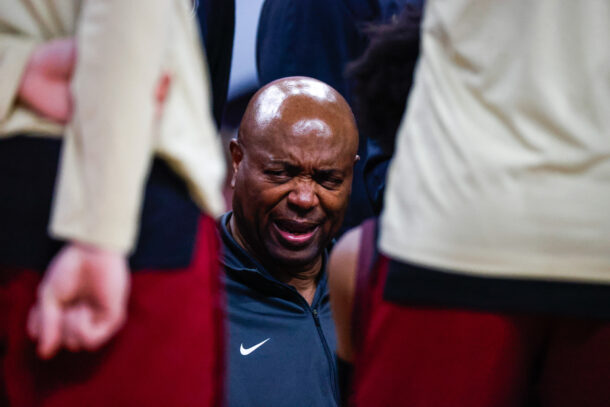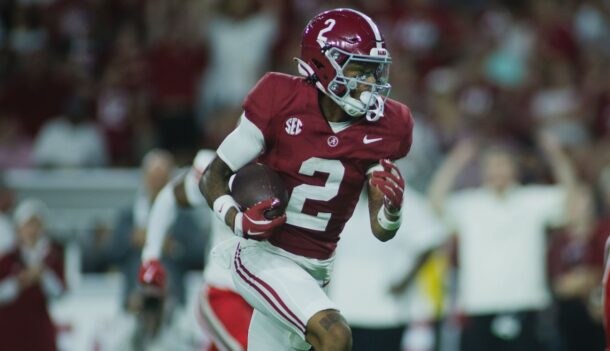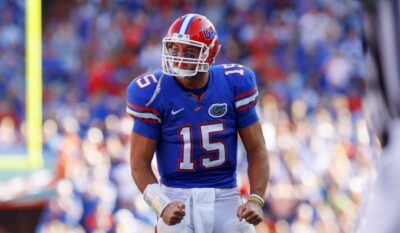
Lawsuit over unpaid NIL money is a bad look for Leonard Hamilton, Florida State and college athletics
Jim Larrañaga’s midseason retirement from Miami last week left Florida State’s Leonard Hamilton as the last man standing from the ACC’s old guard of basketball coaches.
But there’s a good chance he won’t be standing, at least on the sidelines, for much longer.
And unlike his generational counterparts Mike Krzyzewski, Roy Williams, Mike Brey and Larrañaga, he might not be calling it quits on his own terms.
Hamilton’s future with the Seminoles was thrown into doubt Monday with news that the long-time coach is being sued by 6 of his former players over $1.5 million in unpaid name, image and likeness compensation.
The filing, reported by Ross Dellenger of Yahoo Sports, claims that Darin Green Jr., Josh Nickelberry, Primo Spears, Cam’Ron Fletcher, De’Ante Green and Jalen Warley never received the $250,000 each Hamilton allegedly told them they would receive from his unnamed business partners.
That, in itself, is bad enough.
But the details that have surfaced through emails included in court documents and individual interviews conducted by Dellenger cast Hamilton in an even more damning light because of the lies his players are accusing him of telling them.
The players, none of whom are still with the program, were reportedly “so tired of the lies” that they walked out of a practice and threatened to boycott their game against Duke last Feb. 17 unless they received the money they said they were promised.
According to Dellenger’s report, to prevent that from happening, emails among the players suggest that Hamilton told them their money would be in their accounts by the following week. They played the game, which they lost to the Blue Devils.
But the money never arrived.
This lawsuit, filed to the same court in which FSU is suing the ACC in an effort to escape the league’s grant of media rights, is just the latest and most dramatic example of how NIL and the NCAA’s relaxed transfer rules continue to change the landscape of college athletics.
And not for the better. Just as Coach K warned.
Shortly after the Supreme Court issued a ruling in June 2021 that made it permissible for athletes to be compensated for their name, image and likeness, Duke’s Hall of Fame basketball coach told whoever would listen that college sports would become a modern version of the Wild West without a uniform set of rules to manage the process.
Three-plus years later, those rules still aren’t in place. And things have devolved even further than Krzyzewski or anyone else could have predicted.
Back in the “good old days” of bag men, off-the-books shoe deals and other shady inducements, only the privileged few could afford to buy only the best players. With the advent of collectives and other outside NIL agreements, even Duke football now has the ways and means to legally shell out $4 million a year for a transfer quarterback, as it reportedly did with Tulane’s Darian Mensah.
But that’s not even the biggest problem.
The introduction of cash into the equation hasn’t just transformed what was once known as college sports into a professional entity using college team names.
It has opened the door for the Wild West to graduate into a 1980s-style Ponzi scheme with coaches desperate to stay competitive making promises they can’t keep to retain their best players and attract better ones from the transfer portal.
This isn’t exactly a new phenomenon. What’s changed is the dynamic surrounding it.
The balance of power has shifted from the schools and coaches with their multi-million contracts to the athletes now able to get a share of the spoils. And when they don’t get what they say they’ve been promised, they’ve been empowered to hold accountable those offering the deals, most of which aren’t done in writing.
In May, highly-rated quarterback prospect Jaden Rashada – who is now at Georgia – sued the University of Florida and coach Billy Napier claiming he was defrauded of a promised $13 million deal.
In September, UNLV’s starting quarterback Matthew Sluka abruptly quit the team after 3 games to preserve his redshirt, citing “certain representations … were not upheld.””” Those representations involve a minimum $100,000 payment Sluka claims he was offered by an assistant coach.
The ante has been upped even further by details revealed in the Florida State lawsuit.
There’s hope that revenue sharing, which is coming sooner rather than later, will bring at least some sense of law and order to the Wild West by institutionalizing compensation for athletes and removing coaches such as Hamilton, their “business partners” and other third-party benefactors from the financial equation.
Until then, those making the promises are going to have to start living up to them or face the consequences.
Both in court and with their jobs.
Award-winning columnist Brett Friedlander has covered the ACC and college basketball since the 1980s.







